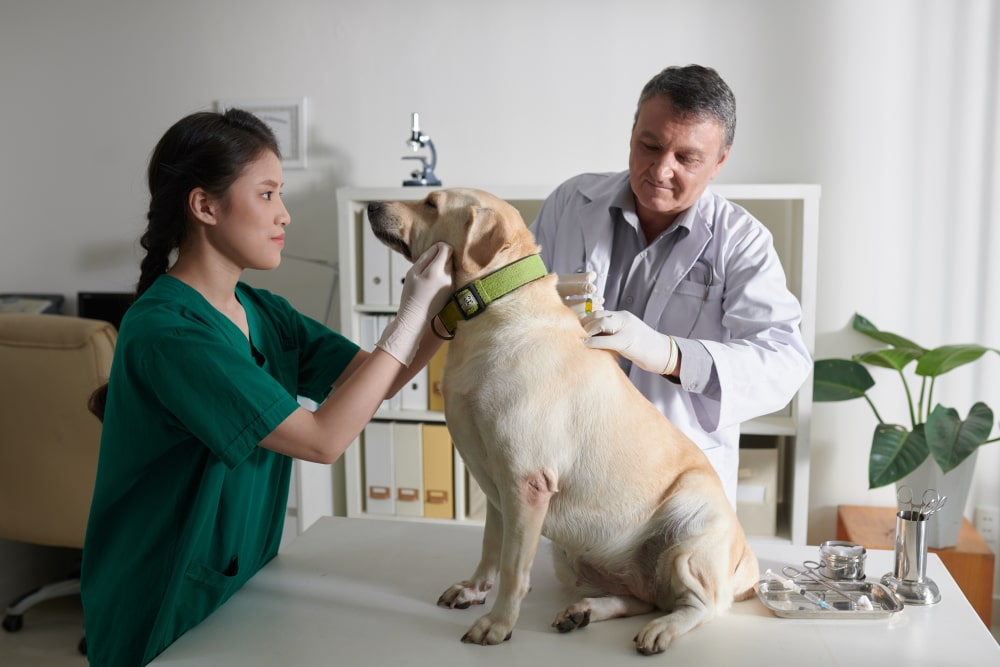As a pet owner, you know that taking care of your pet is no easy feat. From their unique grooming requirements to special diets, your pet needs a lot of love, care and attention.
This is especially true when it comes to healthcare. Like you, your pets can also fall sick from time to time. Be it allergies or a severe injury, whilst we hope you won’t need us, it’s handy to have your emergency vet on speed dial.
Moreover, if your pet is suffering from acute injuries or severe pain, you need the right medication to stop the situation from escalating. For example, if your pet has ingested a toxic substance, emergency vets can diagnose the issue may prescribe antidotes or activated charcoal to prevent the toxin from causing serious harm.
To be better prepared for emergency situations, you may need to stock up on some basic pet medication. However, some types of medicine can only be administered by emergency vets or trained professionals. In such cases, contact your closest emergency vet clinic.
In this blog, we’ll look at pet medication that emergency vets commonly prescribe. Let’s begin.
4 Common Medications Emergency Vets May Prescribe
1. Antibiotics
Antibiotics are commonly prescribed to pets for treating bacterial infections. Your pet can develop a bacterial infection through improper grooming, injury or unsanitary environments. A bacterial infection can cause a range of other health complications like respiratory infections, urinary tract infections, skin infections, and ear infections.
Some bacterial infections can be caused by a type of bacteria that is resistant to common medication. This is when emergency vets prescribe antibiotics.
Antibiotics work by killing the bacteria or by inhibiting its growth, which allows your pet’s immune system to fight off the infection more effectively. Depending on the type of infection, antibiotics can be administered orally, topically, or through injections.
Please note that if your pet has a viral infection, antibiotics are not effective and your vet will not prescribe them.
2. Probiotics
Probiotics are bacteria that are beneficial to your pet’s health. They are naturally present within the digestive system of both humans and animals. Probiotic bacteria help to maintain a healthy balance of microorganisms in the gut. This helps ensure proper digestion and nutrient absorption.
Besides that, probiotics can also help to boost your pet’s immune system, preventing the growth of harmful bacteria, and reducing inflammation.
Your vet may provide you with a prescription for probiotics if your pet suffers from diarrhoea, constipation, or other gastrointestinal issues. Probiotics may also be prescribed if your pet has recently been on antibiotics to maintain the balance of good bacteria in the gut.
Not only that but if your pet suffers from particular allergies or skin conditions, probiotics are your answer. This is because the health of the skin is strongly related to the health of the gut.
3. Anti-Anxiety Medication
Anti-anxiety medication is often prescribed to pets to help manage behavioural health. Like us, a lot of animals experience anxiety too. This could be due to many reasons, such as separation from parents or owners, noise phobias or even generalised anxiety disorder. These conditions are distressing for your pet and can lead to destructive behaviour, injury or, in some cases, self-harm.
Emergency vets or trained professionals may often prescribe benzodiazepines or SSRIs (Selective Serotonin Reuptake Inhibitors). These drugs can effectively help deal with anxiety, insomnia, muscle spasms and more. They function by calming the nervous system and increasing serotonin levels, which can help regulate mood.
However, it’s important to note that anti-anxiety medications should only be prescribed by a veterinarian and used under their guidance. These drugs can have potential side effects, and dosages may need to be adjusted based on your pet’s needs.
4. Epinephrine
Epinephrine or adrenaline is essentially a hormone and a neurotransmitter that plays a crucial role in the body’s fight-or-flight response. Epinephrine is usually prescribed to pets for treating anaphylaxis, severe asthma, heart failure and shock. Your vet may administer it in the form of an injection.
Anaphylaxis is a type of allergic reaction that can be fatal to your pet. Emergency vets may prescribe epinephrine so that it can narrow the blood vessels and open the airways, thereby increasing blood pressure and breathing rate.
Some animals with severe health conditions may experience severe asthma attacks and may not respond to standard medication. In such cases, epinephrine can help by instantly relaxing the muscles in the airways and improving overall breathing, saving your pet from danger.
Do note that epinephrine should only be administered by your emergency vet or a trained professional.
Contact Pet Emergency Hospital for Emergency Diagnosis, Surgery and Treatment
When your pet suffers, you suffer too.
Whether it’s an allergic reaction or a serious trauma-related injury, you need to take quick action to ensure that your pet receives medical attention as quickly as possible.
This is where we come in. At Pet Emergency Hospital, we are a team of skilled, out of hours vets who have been trained extensively to deal with all types of medical emergencies. Whether it’s late at night on a weekday or a weekend, we are here to help when you can’t reach your vet.
From emergency surgery to diagnosis to treatment, we will take care of your pet in every way.
Contact us at (01) 2609920 for emergencies.


Recent Comments